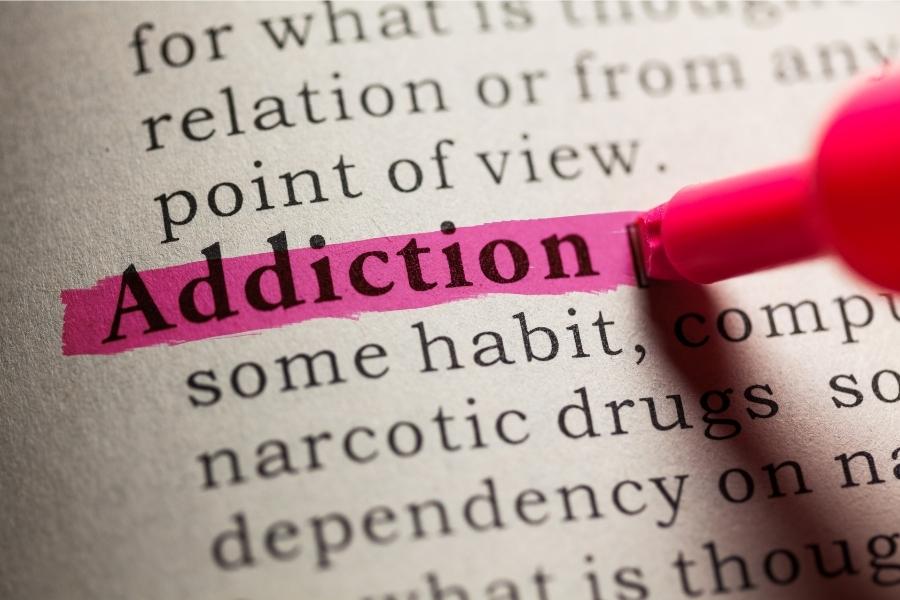Addictions can be rooted in a fear of letting go and a need for control. When someone is addicted to a substance or behavior, they may feel like they need it to function or to feel normal. However, addiction is actually a way of coping with difficult emotions or situations. In many cases, people turn to addiction as a way to avoid feeling fear, pain, or anxiety.
Addiction can also be a way of trying to control your life. When you are addicted to something, you may feel like you have more control over your life than you do when you are sober. You may feel like the addiction is the only thing that is keeping you together. However, addiction actually causes chaos and destruction in your life. It takes away your control, rather than giving it to you.
How control feeds addiction
The need for control is often at the root of addiction. When you are addicted to something, you may feel like you need it to function or to feel normal. In many cases, people turn to addiction as a way to avoid feeling fear, pain, or anxiety which is the result of holding so tightly to the control mechanism in their life. Control is a projection from the ego and is based on the false belief that we are not enough and need something outside of ourselves to make us feel better or complete.
Control and the ego
The ego is the part of us that wants everything to be perfect. It’s the part of us that wants to be in control all the time. The ego is afraid of change and will do anything to avoid it. The ego is also afraid of feelings like pain, fear, and anxiety. When we are controlled by our egos, we may turn to addiction as a way to avoid these difficult emotions.

Where does the ego come from?
The ego is often a result of early childhood wounds. When we are children, we are vulnerable and dependent on our caregivers for survival. If our caregivers are not able to meet our needs, we may develop a sense of insecurity. This can lead to the formation of the ego, which is a false sense of self that is based on these early wounds.
The ego is also fed by the beliefs and messages we receive from society. Society tells us that we need to be perfect and that we need to have certain things in order to be happy. These messages can reinforce the ego’s belief that we are not enough and that we need something outside of ourselves to make us feel better.
Evolutionary psychology and the ego
Evolutionary psychology tells us that the ego is actually a survival mechanism. In the past, humans needed to be constantly on the lookout for danger. The ego helped us to do this by always being on the lookout for anything that could threaten our safety.
Today, we don’t need to worry about being eaten by a saber-toothed tiger. However, the ego is still with us. It’s just not always as helpful as it once was.
The ego is often the root of addiction because it leads us to seek out things that we think will make us feel better or that will give us a sense of control. This sense of control is fuel by millennia of uncertainty and danger. It’s important to understand the ego and how it works so that we can learn to decipher the messaging we receive from it.

How to deal with the ego
There are a few different ways that you can deal with the ego. First and foremost is to become aware of it. Recognize when your ego is trying to take over. Often, the ego will try to control your thoughts and your behavior. It will tell you that you need to do things in order to be happy or successful.
If you can become aware of these messages, you can start to question them. Why does the ego want you to do this? Is it really in your best interest? Once you start to question the ego’s messages, you can start to see through them. These messages will become great teaching tools that can help you to learn more about yourself and what you really need in order to be happy.
Another way to deal with the ego is to practice mindfulness. Mindfulness is the practice of being present in the moment and observing your thoughts and feelings without judgement. When you are mindful, you are not identified with your thoughts and feelings. You are simply observing them.
This can be a helpful practice when the ego is trying to take over. If you can observe your thoughts and feelings without judgement, you can start to see that they are not really who you are. They are simply thoughts and feelings that are passing through your mind which may be based on old wounds or false beliefs.
You can also practice self-compassion. This is the act of being kind and understanding towards yourself. When you are able to be compassionate towards yourself, it becomes easier to see the ego for what it is. It also becomes easier to let go of the ego’s messages.
Self-compassion is a practice that can be difficult to learn, but it is worth the effort..

Loving yourself for the person you are
The ego is a part of the human condition. It’s important to understand it and how it works so that we can learn to deal with it in a healthy way. The ego is not bad. It’s just a part of who we are.
We can learn to love ourselves for the person that we are, not the person that the ego wants us to be. When we do this, we can start to live a life that is more authentic and fulfilling.
If you are struggling with addiction or pervasive thoughts, know that you are not alone. We have designed a mindfulness meditation to help you and others work through these habitual patterns.
You can also schedule a visit with us to talk about your unique experience and which services might help you in identifying the ego and letting go of control to achieve a more fulfilling life.

